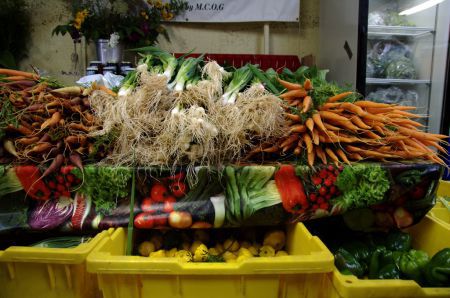A new initiative to provide low-income residents with fresh local produce brings new meaning to the term 'community supported agriculture.'
The Ecology Action Centre, in partnership with the YMCA of Cumberland and Goodlake Farm, has introduced the Cumberland County Cost-Share CSA.
The first-of-its-kind pilot project allows the county's low-income residents to subscribe to a CSA for only $10 per week — less than half the weekly cost of a regular membership which is an average of $30-40.
Program coordinator Su Morin explains that costs are subsidized by donations from community leaders and organizations who believe healthy food should be accessible to those who otherwise couldn't afford it.
“It’s really important to improve access to fresh local produce among the more vulnerable communities,” she says.
Since the program launched in May, more than 40 low-income families near Amherst have received a weekly box of fresh goods from six farms in the county.
Morin describes the cost-share CSA subscribers as people who want to invest in the local food economy, but are otherwise unable to as a result of financial barriers and a lack of disposable income.
This project offers people the opportunity “to feel good about where their food dollars go," she says.
Morin stresses the project is not to be confused with a charity. She says the cost-share model was developed to provide low-income earners with a sense of ownership that providing handouts cannot, while at the same time supporting the livelihoods of local famers.
“A lot of these farm families are struggling with (financial) insecurity,” Morin explains. “This project is also about trying to preserve our local farm economy.”
"Cumberland country is one the poorest in the region," she adds, saying that is why it was selected for a pilot location. In a 2010 poverty report by the Canadian Centre for Policy Alternatives, the area was named the second poorest county in the province.
As it nears the midpoint of summer, Morin is confident the cost-share CSA will continue to grow in the years to come. She hopes to see other counties in the provinces adopt the program, and wants to see more than double the amount of participating farms and memberships by next year.
The cost-share CSA is not the only initiative of the Ecology Action Centre’s Food Project that aims to improve the province's local food system and promote healthy eating for all.
Morin says one plan is to start supplying more local produce to a number of food banks. Another goal is to help farmers offer year-round CSAs by teaching skills, such as canning, as well as providing the resources to increase their storage capacity during winter.



